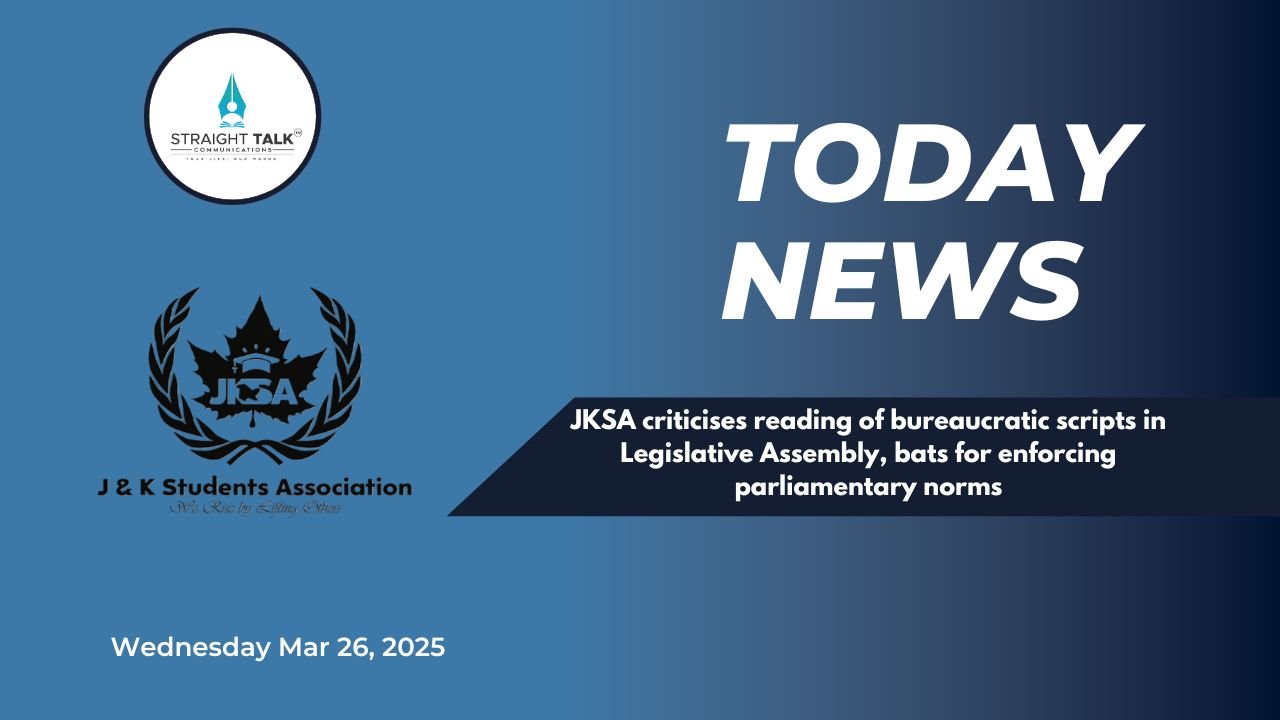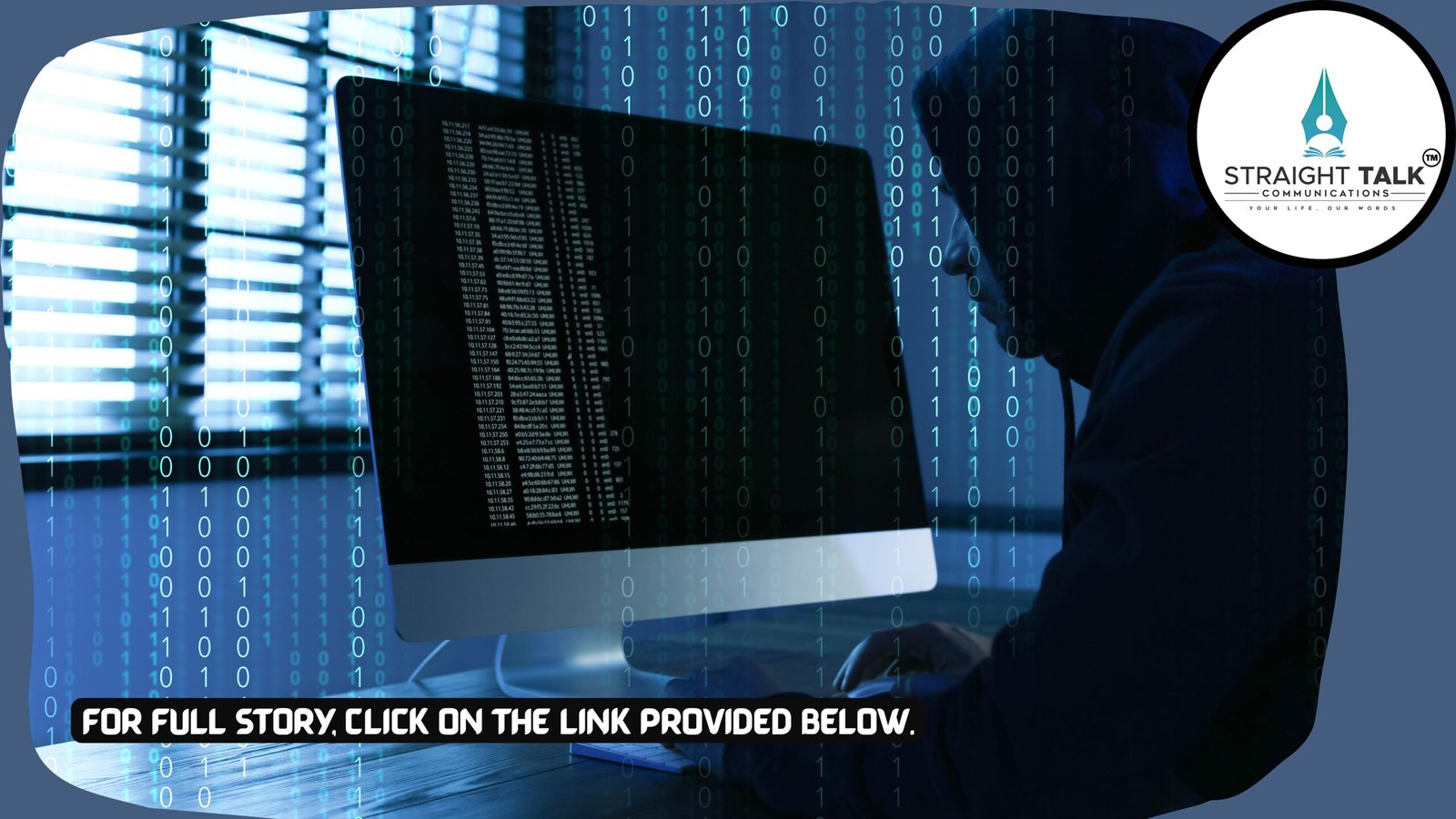JKSA criticises reading of bureaucratic scripts in Legislative Assembly, bats for enforcing parliamentary norms

STC NEWS DESK
SRINAGAR, MARCH 26 (STC): The Jammu and Kashmir Students Association’s National Convenor, Nasir Khuehami, on Wednesday, in a formal communication to the Jammu and Kashmir Legislative Assembly, Abdul Rahim Rather, has emphasized the need for ministers to independently prepare their responses and articulate them in a manner comprehensible to the common public, rather than merely reading out answers prepared by bureaucrats from the concerned departments. written to the Speaker of the
has raised concerns over the adherence to established parliamentary norms within the Assembly.
Khuehami stated that, as per the rules and principles governing legislative proceedings, ministers and legislative members are required to demonstrate their understanding of policy matters and governance issues. The rules further emphasize that ministers should refrain from excessively relying on papers, as doing so reflects a lack of seriousness and a casual approach toward the pressing concerns raised by MLAs.
He cited recent remarks by Rajya Sabha Speaker Panel member Ghanshyam Tiwari, who reiterated that members are not allowed to read their entire speech from a paper. He reinforced the notion that parliamentary debates should be engaging, substantive, and reflective of a minister’s own understanding of the subject matter. As per established laws and parliamentary proceedings, members are permitted only to quote from their notes to support their arguments or provide factual references.
Highlighting constitutional provisions, the Association referred to Article 118 of the Constitution of India, which empowers each House of Parliament to make rules for regulating its procedure and the conduct of its business. This provision underscores the autonomy of legislative bodies in ensuring that their proceedings adhere to democratic norms and established parliamentary practices.
The Association also referred to the Rules of Procedure and Conduct of Business in Lok Sabha, specifically Section 352, which states that a member, while speaking, shall not read a written speech except with the prior permission of the Chair. This rule clearly emphasizes that members, including ministers, should not read out written speeches verbatim unless they have obtained prior permission from the Speaker. The intent behind this provision is to encourage spontaneous and genuine discourse, ensuring that debates are engaging and reflective of the members’ own understanding.
Similarly, Rule 261 of the Rules of Procedure and Conduct of Business in the Council of States (Rajya Sabha) states that a member shall not read his speech but may refresh his memory by referring to notes. This reinforces the expectation that members, including ministers, should not merely read out bureaucratic notes but should instead engage in informed and meaningful discussions.
Khuehami noted that while the Rules of Procedure and Conduct of Business in the Jammu and Kashmir Legislative Assembly largely mirror parliamentary norms, it is imperative that they be implemented in spirit to uphold the sanctity of legislative debates. He emphasized that the House is a forum for deliberation and accountability, not merely a platform for bureaucratic announcements.
He asserted that the essence of legislative proceedings lies in meaningful deliberation, where ministers demonstrate their grasp of policy matters and governance issues. He stated that the Jammu and Kashmir Assembly, being the highest law-making body of the Union Territory, must uphold these parliamentary standards with the utmost sincerity.
He further emphasized that a minister who simply parrots bureaucratic notes not only undermines the sanctity of the Assembly but also disrespects the spirit of parliamentary democracy.
He urged the Assembly Speaker to ensure strict compliance with these parliamentary conventions in the proceedings of the Jammu and Kashmir Assembly. He called for immediate intervention to reinforce these essential standards among ministers and members of the House.(STC)







